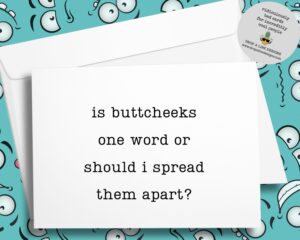 Originally posted to Reaper Edits
Originally posted to Reaper Edits
The biggest challenge for an editor comes from copy editing anthologies. With a novel, you have one or two writers’ styles from beginning to end. You adjust early on and carry it through to the end. Anthologies?
I received an assignment from a well-known short story writer and editor, himself a freelance editor. This came from our mutual publisher, which meant he had done some of the work already. I know. I’ve written for him and have had a couple of stories show up over the last two years in his books. So I’ve seen what happens before it lands on my desk on the other end. He loves editing short stories. Short fiction has been his passion for as long as I’ve known him. (About twenty years or so at this point.) Yet he said to me as I received the first of his anthologies from our publisher, “I’d rather have a spike through my head than edit an anthology.”
Still, I use his notes on editing as they’re useful.
We should spell out a couple of definitions here as anthology too often gets used interchangeably with collection. The two terms are not identical. A collection is a series of short stories or novellas by a single author or author team (like James SA Corey, who is actually the duo responsible for the Expanse series.) Think Stephen King’s recent You Like It Dark or his first collection, Night Shift. I have two coming out soon–The Compact Reader as TS Hottle and a collection of crime and suspense stories under the name Jim Winter. Whenever I publish a short story or stash a handful of scenes, I’m building a collection. There are already four stories set for a future Jim Winter collection.
An anthology is a collection of short stories and novellas by different writers, and there, the premise gets interesting. Many are the Best of… books you see about this time of year. (This is being published mid-October, 2024, and the Best ofs for this year are already poking their heads up as I write.) Some are in a shared universe, like Colin Conway’s 509 series. You write in the setting, but it’s his sandbox. Then there are the themed anthologies. Hoo boy, those are fun. Especially the music themed ones. Editor Brian Thornton did a pair of Steely Dan-themed anthologies, Die Behind the Wheel and A Beast Without a Name, that brought me back to crime fiction after about a seven-year absence. And let me tell you, as a writer, music-themed anthologies are fun, even when they go dark.
As an editor? Not so much. The average small-press anthology from crime fiction is usually 80-90 thousand words. Fair enough. That’s most crime novels. But unless the novelist is sloppy or uses me to get a final draft, I can breeze through a copy edit in about a week if the day job and real life cooperate. (It usually does.) Anthologies take longer. Because I may get a story from a well-known writer who works for a major daily, website, or magazine, and I’m usually “moving commas around.” But the next writer procrastinated and handed me the equivalent of the term paper written the night before it was due. So while I’m sailing through one story to the point where there are no track changes on two consecutive pages of prose, it takes me fifteen minutes just to get through the opening three paragraphs of the next. Slashing passive voice, same word starting every sentence (“He/she” and “I” are the most common offenders), and chopping up run-ons. But that’s every book, even the ones I barely touch anything.
The real challenge is the nature of the anthology itself, why my editor friend much prefers the therapeutic spike insertion in his skull. The style shifts, and you, as an editor, have to shift with it. For example, my first anthology was Gary Phillips’s effort based on the music of James Brown. Naturally, race enters into it. Fortunately, I know Gary well enough, so I asked him if he had a preference for how certain phrases and words were rendered. One of them was “black,” as in of African descent. Some writers capitalize it. Some don’t. And the race of the author doesn’t really give you any clues. One scifi writer I know, who is quite vocal about racial issues, doesn’t capitalize it. Yet another one, who’s just tossing something over the transom, will. Like numerals-vs.-words for numbers, every writer’s approach is a complicated calculus of experience, personal belief, and that old chestnut that trips me up as a writer, “That’s how I was always taught to do it.”
Another problem is some of the writers are lawyers. Most lawyers understand that I, the editor assembling the anthology, and the publisher are not Supreme Court Justices or even the mayor adjucating traffic tickets. In law, almost Everything is Capitalized, particularly if it’s repeated several times or is a generic term used to identify someone. However, some of them forget that’s not how anyone from Jonathan Franzen to Stephen King to Chuck Tingle writes. Franzen, King, and Tingle all have audiences with little overlap, but they all have audiences that have to read the damn thing they just wrote. (I’ll leave who does it best to you. Despite the rantings of the late Harold Bloom, it’s a purely subjective exercise. Your English teacher was wrong. So was your MFA advisor. I have spoken!) So, yes, lawyers sometimes have to be told they’re not writing a court brief. But they’re not the only ones. Scientists, IT geeks like me, writers who grew up on TikTok or even, as my son tried to teach me when he was a teen, 133t speak, have to be reminded you need commas and can’t just say, “He LOL’d that.” (And I probably just threw down the gauntlet for some GenZ genius who will prove me wrong. And right at the same time. Can’t wait to read what they write.)
So anthologies are, of course, fun to write. Collections can be a pain in the ass. Often the writer changes their mind mid-edit, which is really a good way to get dropped as a client or by a publisher if you abuse the privilege. Novels, of course, are novels. With dev edits, it’s a challenge, but that’s like making the walls straight, the concrete level, and the electricity grounded, to use a house-building metaphor. By the time a novel reaches the copy-editing stage, especially when a publisher has already touched it, it’s basically finding the punch list for the writer, if we can carry the building metaphor further.

 Originally posted to Reaper Edits
Originally posted to Reaper Edits I’ve now been editing for the better part of a year. To say that I learned a lot is an understatement. Some of the work Down & Out has sent me could be intimidating. My first project came from a well-known author in crime fiction circles, one I read quite a bit of in the oughties. I might have been more rigid on that one simply wanting to do a good job when, as a writer, I actually turned to this guy for advice. But I’ve learned a lot since then. Like, the writer expects you to edit. So if there’s a glaring issue, it probably means he or she forgot it or wants suggestions.
I’ve now been editing for the better part of a year. To say that I learned a lot is an understatement. Some of the work Down & Out has sent me could be intimidating. My first project came from a well-known author in crime fiction circles, one I read quite a bit of in the oughties. I might have been more rigid on that one simply wanting to do a good job when, as a writer, I actually turned to this guy for advice. But I’ve learned a lot since then. Like, the writer expects you to edit. So if there’s a glaring issue, it probably means he or she forgot it or wants suggestions.